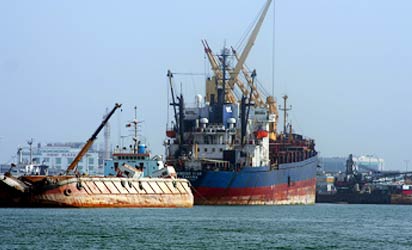The federal government has been urged to take concrete and deliberate measures to unlock the abundant economic potential in the country’s marine and blue economy for it to actualise the billion dollars revenues anticipated from the sector.
A maritime analyst and Chief Executive Officer of Ships and Ports, Dr Bolaji Akinola, said encouraging Nigerians into owning fishing trawlers can stem capital flight and retain value locally.
Dr Akinola affirmed that the desire of the President Bola Ahmed Tinubu’s administration to achieve the expected trillion-dollar revenue from the maritime sector will pose a significant challenge for the government unless deliberate efforts are made to expand key segments of the sector for the greater economic benefits of the country and its citizens.
Speaking on a TVC television programme, he explained that Nigeria is blessed with an extensive coastline along the coast of guinea that boosts abundant marine resources with immense potential for its economic growth and development.
Dr Bolaji said actualising the trillion-dollar benefits anticipated from the blue economy will require that concerted efforts and actionable initiatives are taken.
He said, “There is a need for an alignment of purpose. For instance, let’s look at the fishing aspect, because these are the low-hanging fruits, the coastal trades, the international trades, even the fish trawling industry. We also need to look at that and say look, how do we now ensure that we get more Nigerian fishing trawlers into this business so that we can stem capital flight and retain value locally here.”
Citing the huge amount of revenue the country lost in trades, he said, “Nigeria loses a lot of money from international trade, the movement of crude oil out of the country, the importation of petroleum products into this country and the importation of many other goods into this country. On the average I think about 5000 vessels from statistics coming to Nigeria, none of these vessels belong to a Nigerian.
On how the federal government and the Ministry of Marine and Blue Economy can address the lingering challenges, Bolaji calls for huge investment in port infrastructure, streamlining of regulatory processes and improving operational efficiencies.

 Join Daily Trust WhatsApp Community For Quick Access To News and Happenings Around You.
Join Daily Trust WhatsApp Community For Quick Access To News and Happenings Around You.


